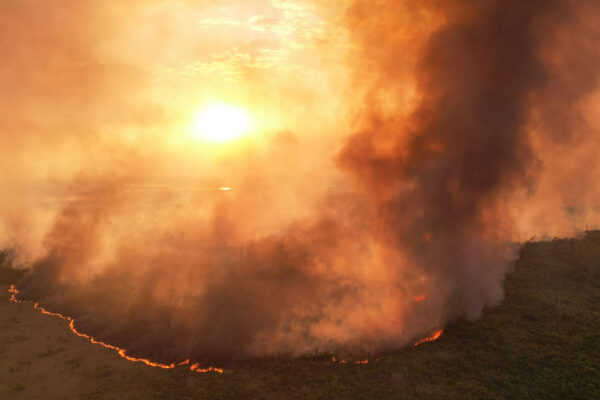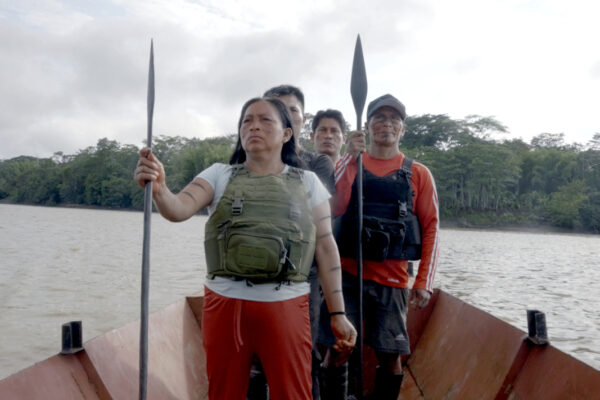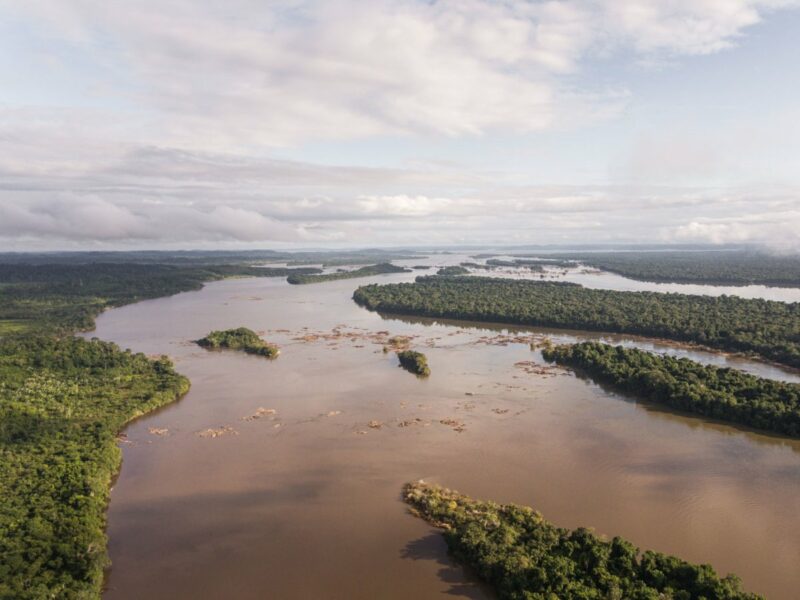Last week in Brasília, the power of collective action sent shockwaves through Brazil’s political establishment. After months of organizing on the ground and across borders, the Brazilian government vetoed 63 provisions of Bill 2.159/2021 – widely known as the Environmental Licensing Bill, or the “Devastation Bill.”
It was a partial victory, but an important one. The decision came just days after Indigenous leaders, grassroots movements, and environmental defenders delivered more than one million petition signatures to President Lula. Many of those signatures came from Amazon Watch supporters who took action through our online campaign, joining a global chorus demanding a full veto.
This wave of international solidarity mattered. It showed that the world is watching, and it made it harder for the government to ignore the call.
“The announced vetoes are a necessary breath of relief and show that the government has listened to part of society’s mobilization. There have been important advances, but the road ahead is still long,” explained Célia Xakriabá, Indigenous leader and Federal Congresswoman. “Congress will review the vetoes and complementary texts amid high political tension, and civil society mobilization will remain essential to ensure that our environmental legislation serves as a tool for protection – not destruction – of nature, people, and transparent, fair processes, in respect of the Constitution and international treaties.”
The veto stops some of the bill’s worst provisions. It blocks the expansion of the License by Adhesion and Commitment for medium-impact projects, preventing companies from moving forward with risky developments based only on self-declaration. It maintains protections for Conservation Units, Indigenous and Quilombola communities, and ecologically vital biomes like the Atlantic Forest. And it preserves requirements for environmental impact assessments, reaffirming the authority of agencies like Ibama, ICMBio, and Iphan.
But as many Indigenous leaders have made clear, the bill still leaves behind dangerous loopholes that put people and the planet at risk.
More than 500 Indigenous lands remain unrecognized due to decades of government neglect, leaving them invisible in the licensing process. Arbitrary distance limits – like the 8 km rule for mining projects – mean that a community just 8.5 km away from a mine can be ignored, even if the project threatens its water, forests, and way of life. This legal fiction poses an existential threat to communities that remain invisible in the licensing process.
One of the bill’s most controversial provisions – the Special Environmental License – also survived. Maintained through a new executive order, it creates a fast-track for high-impact infrastructure, mining, and oil projects in some of the most vulnerable parts of the Amazon.
What’s next?
With COP30 in Belém just months away, Brazil had a chance to send the world a bold message about its commitment to climate justice. Instead, it delivered a mixed one – a partial retreat from the brink, but not a full defense of the Amazon or Indigenous rights.
That’s why the fight isn’t over. We must:
- Pressure Congress to uphold Lula’s vetoes of the “Devastation Bill”: Overturning them would weaken environmental licensing, erode protections, and violate the rights of traditional communities. Public pressure remains decisive.
- Advance recognition and demarcation of all Indigenous lands: Over 530 land claims await FUNAI recognition, leaving communities vulnerable to land grabs, deforestation, and exclusion from licensing protections. Continue pushing for the recognition and demarcation of all Indigenous lands.
- End arbitrary impact-distance rules: The 8 km limit for mining projects ignores science and Indigenous consultation. Impact must be defined by real threats to water, forests, and people.
- Impose safeguards on the Special Environmental License: Without strict limits, oversight, and strong environmental and social criteria, this could fast-track destructive projects in sensitive ecosystems and traditional territories.
- Center Indigenous leadership in policy-making: Respect Free, Prior, and Informed Consent, and ensure space and funding for Indigenous-led proposals in environmental governance.
Amazon Watch will continue to work alongside our Indigenous partners to close these loopholes and defend the Amazon – and we know we can count on you to stand with us.
This partial veto happened because people across Brazil and around the world raised their voices. Let’s keep the pressure on!














